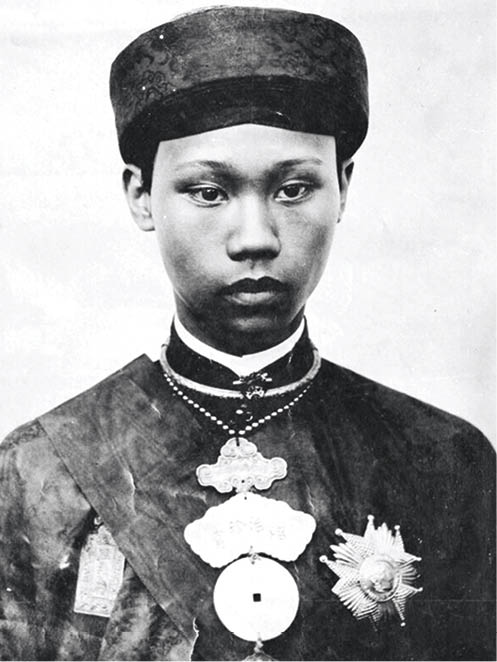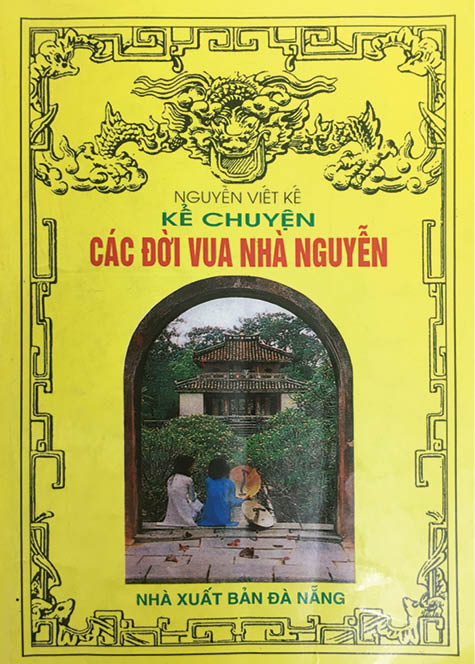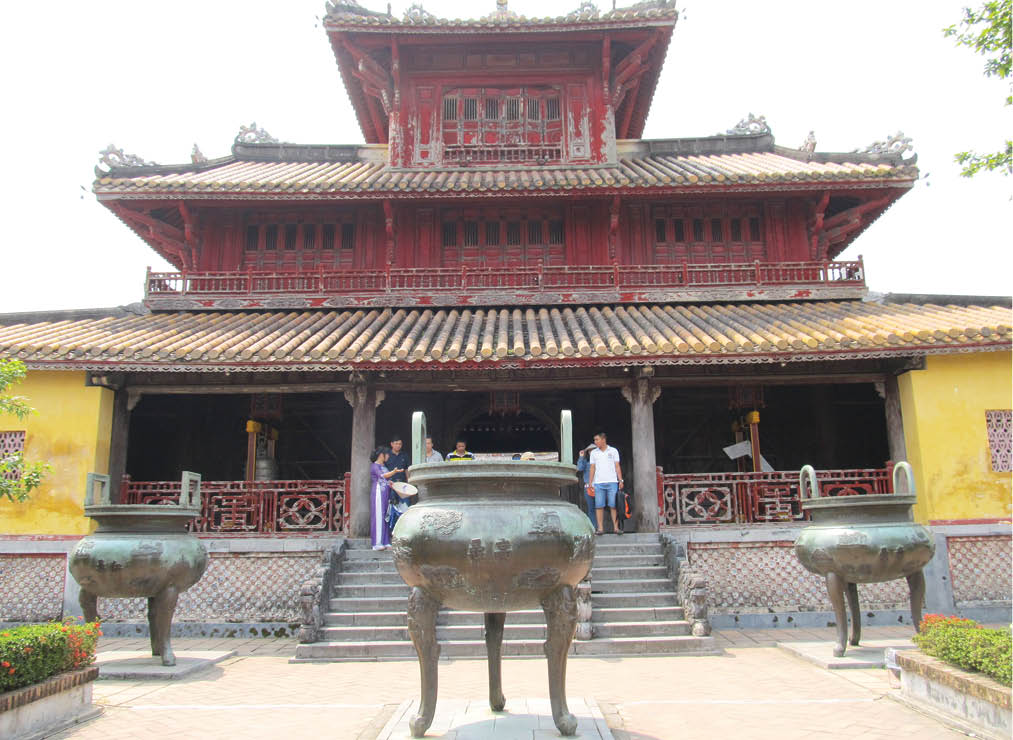
Thanh Thai - the 10th emperor of the Nguyen dynasty. (Documentary photo)
Previously, I had a good habit of purchasing a book at the place I visited as a souvenir. Once I chose the book "Stories of the Nguyen Kings" by Nguyen Viet Ke (Da Nang Publishing House - 2006).
The book was 13cm x 19cm in size and just about one hundred and a half pages thick with a yellow cover and simple presentation. Its price was reasonable and its content was just my favorite. I picked the book without any hesitation.
On the swaying train back to Hue, I leisurely opened the book about the lives of the 13 emperors of the Nguyen dynasty and read it in one sitting. The book interested me with its simple smooth understandable writing style. It made my journey back home shorter and less tedious.

“Stories of the Nguyen Kings" by Nguyen Viet Ke. Photo: Thuong Bich
Among the stories in the book, there was an enjoyable one about the enthronement of prince Buu Lan (later emperor Thanh Thai.) As the story went, after emperor Dong Khanh passed away, since the Co Mat Vien (Council of Ministers) of the Nguyen dynasty could not make the decision about who to succeed, a delegation was sent to consult with the French Resident Superior.
At the time, Mr. Diep Van Cuong was working at the French Resident Superior’s office as a secretary and interpreter. He was in charge of interpreting the conversation between the delegation and the French Resident Superior.
“Now that emperor Dong Khanh has passed away, in your opinion, who should we choose to be the successor?” asked the delegation. Diep Van Cuong interpreted the question into “Now that emperor Dong Khanh has passed away, Luong Ton Cung and Co Mat Vien have agreed to choose prince Buu Lan to succeed to the throne, so what is your opinion?"
“If Luong Ton Cung and Co Mat Vien have agreed to choose prince Buu Lan, then I will agree,” answered the French Resident Superior. His reply was then interpreted by Diep Van Cuong into “In my opinion, choosing prince Buu Lan is best.”
So the delegation returned and prince Nguyen Phuc Buu Lan became emperor Thanh Thai _ the 10th emperor of the Nguyen dynasty. Diep Van Cuong explained that he was prince Buu Lan’s uncle. (Diep Van Cuong was princess Thien Niem’s husband and Thien Niem was Thoai Thai Vuong Nguyen Phuc Hong Y’s daughter and prince Nguyen Phuc Buu Lan’s biological aunt). Feeling the opportunity, Diep Van Cuong had taken advantage of his job to help his wife’s nephew become king.

Hien Lam Pavilion in the Imperial City in Hue. Photo: Thuong Bich
This story is very exciting but frankly, I did not believe it at first, thinking that was an exaggerated anecdote just for fun. Who dared to play a trick on an all-important issue like that? But later on, I found out the story was mentioned in many documents. I began to admire the boldness of this man named Diep Van Cuong. Who was the man who dared to do such a “heinous” thing?
According to Wikipedia, Diep Van Cuong (1862-1929) (i.e. Tho Son, title: Yen Sa, pen name: Cuong Si) was a Vietnamese journalist and teacher in the early 20th century. He was considered by the scholar Vuong Hong Sen representative of the intellectual circle at that time. Though born in Cao Lanh District, Sa Dec Province (now Dong Thap Province) into a poor family, he studied very well. He was sent by the French government in Cochinchina to study at Collège d'Adran. After graduation, he studied abroad in Alger and got his baccalaureate in France.
Returning home with French citizenship, he taught at Chasseloup Laubat School. In April 1886, when Paul Bert was sent to Vietnam to work as Ambassador General of Annam and Tonkin, Diep Van Cuong was invited to Hue to work as the interpreter for the French Resident Superior’s Office of Annam. Later that year, he was appointed to replace Truong Vinh Ky to be the teacher of French for emperor Dong Khanh. Around May 1887, a school teaching French (called So Hanh Nhon) was opened and he was appointed to be the principal. He married Cong Nu Thien Niem, Thoai Thai Vuong Hong Y’s daughter. She was emperor Duc Duc’s younger sister and prince Nguyen Phuc Buu Lan’s biological aunt.
The scholar Vuong Hong Sen wrote about Diep Van Cuong in his book “Saigon of the Past” as follows: "He was short and big and his elegance was known across the country. He could recite poetry sonorously and speak good French. By nature, he enjoyed Vietnamese classic opera and memorized many operas, which actors and actresses admired. Frank and hard-hearted, he enjoyed mocking white people. Everyone including westerners kept themselves away from him because they did not want to lose face.”
With such a temperament, it was no wonder that he dared to take advantage of his French language skill to play a trick on both the French Resident Superior and the Council of Ministers. Diep Van Cuong did this out of his familial relationship but also his admiration for prince Buu Lan. No matter what the aim was, the most important thing was that he contributed to having such a patriotic king for the Nguyen dynasty in the darkest time of history, who has been admired by many until now.
By THUONG BICH
